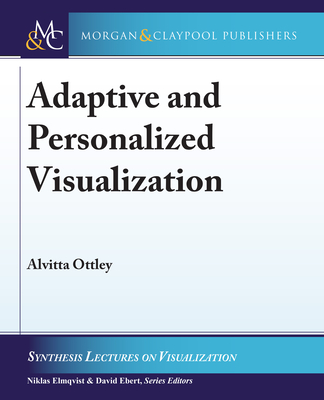相關主題
商品描述
This book presents the latest research in cognitive security, a rapidly emerging field that addresses the vulnerabilities in human behavior and cognition that can lead to Cyber-Physical Systems (CPS) compromise. This book demonstrates that as adversaries increasingly use manipulative and deceptive information to disrupt human cognitive processes, including sensation, attention, memory, and mental operations, humans are misled into fallacious reasoning and manipulated decisions that can lead to system-level meltdown. Cognitive security aims to protect humans from the exploitation of cognitive vulnerabilities, help them make informed decisions that are free from manipulation and undue influence, and mitigate the aggravating risk in the ensuing steps of the attacker's kill chain.
This book offers solutions that work across different fields, such as psychology, neuroscience, data science, social science, and game theory, to deal with cognitive threats. It guides the reader through the core ideas with figures, real-life examples, and case studies. Moreover, it formally defines all research questions, presents the results using mathematical theorems and proofs, and obtains insights through numerical validation. This book provides a self-contained and brief overview of essential system-scientific tools for modeling, analyzing, and mitigating cognitive vulnerabilities. The concepts of human cognitive capacities and cognitive vulnerabilities are formally discussed, followed by two case studies in the scenarios of reactive and proactive attention vulnerabilities. This book provides insights and applications on this transdisciplinary topic, with the goal of motivating future research in this emerging area and pushing the frontier of human-technology convergence. This book is a valuable reference for researchers and advanced-level students studying or working in cognitive security and related fields. It is also useful for decision-makers, managers, and professionals working within these related fields.
商品描述(中文翻譯)
這本書介紹了認知安全的最新研究,這是一個快速發展的領域,旨在解決人類行為和認知中的脆弱性,這些脆弱性可能導致網絡物理系統(Cyber-Physical Systems, CPS)的妥協。這本書展示了隨著對手越來越多地使用操控性和欺騙性的信息來干擾人類的認知過程,包括感知、注意力、記憶和心理操作,人類被誤導進入錯誤的推理和被操控的決策,這可能導致系統層面的崩潰。認知安全的目標是保護人類免受認知脆弱性的利用,幫助他們做出不受操控和不當影響的明智決策,並減輕在攻擊者的殺傷鏈後續步驟中加劇的風險。
這本書提供了跨越不同領域的解決方案,例如心理學、神經科學、數據科學、社會科學和博弈論,以應對認知威脅。它通過圖示、實際案例和案例研究引導讀者理解核心思想。此外,它正式定義了所有研究問題,使用數學定理和證明呈現結果,並通過數值驗證獲得見解。
這本書提供了一個獨立且簡明的概述,涵蓋了建模、分析和減輕認知脆弱性的基本系統科學工具。人類認知能力和認知脆弱性的概念被正式討論,隨後是針對反應性和主動性注意力脆弱性的兩個案例研究。這本書對這一跨學科主題提供了見解和應用,旨在激勵未來在這一新興領域的研究,並推動人類與技術融合的前沿。這本書是研究或在認知安全及相關領域工作的研究人員和高級學生的重要參考資料。對於在這些相關領域工作的決策者、管理者和專業人士也非常有用。
作者簡介
作者簡介(中文翻譯)
林安黃(Linan Huang)於2016年獲得中國北京理工大學電機工程學士(榮譽)學位,並於2022年在美國紐約大學(NYU)布魯克林校區獲得電機工程博士學位。他目前是清華大學的助理研究員。他獲得了多項獎項,包括2022年Dante Youla獎以表彰其研究生研究卓越、2022年GameSec會議最佳論文獎,以及2022年INFORMS MAS Koopman獎。他的研究興趣包括多代理系統中的動態決策、機制設計、人工智慧、網路安全以及網路物理系統的韌性。
朱全彥(Quanyan Zhu)於2006年獲得麥吉爾大學電機工程榮譽學士學位,2008年獲得多倫多大學碩士學位,並於2013年在伊利諾伊大學香檳分校(UIUC)獲得博士學位。在普林斯頓大學任職後,他目前是紐約大學(NYU)電機與計算機工程系的副教授。他是紐約大學城市科學與進步中心(CUSP)及網路安全中心(CCS)的附屬教員。他獲得了多項獎項,包括NSF CAREER獎、NYU Goddard年輕教員獎、NSERC博士後獎學金(PDF)、NSERC加拿大研究生獎學金(CGS)以及Mavis未來教員獎學金。他主導並主持了INFOCOM智慧能源系統通訊與控制研討會(CCSES)、中西部控制與博弈理論研討會(WCGT)以及ICRA機器人安全與隱私研討會。他目前的研究興趣包括博弈理論、機器學習、網路欺騙、網路優化與控制、智慧城市、物聯網以及網路物理系統。他曾擔任2016年和2020年第七屆及第十一屆安全決策與博弈理論會議(GameSec)的總主席或技術程序委員會主席、2018年第九屆網路遊戲、控制與優化國際會議(NETGCOOP)、2019年第五屆人工智慧與安全國際會議(ICAIS 2019)以及2020年IEEE資訊取證與安全研討會(WIFS)的總主席。他是四本最近由Springer出版的書籍的共同作者:關鍵基礎設施的網路安全:博弈理論方法(與S. Rass、S. Schauer及S. König合著)、韌性相互依賴網路分析與設計的博弈與決策理論方法(與J. Chen合著)、安全與韌性網路物理系統的跨層設計:決策與博弈理論方法(與Z. Xu合著)、網路欺騙的博弈理論(與J. Pawlick合著)。












